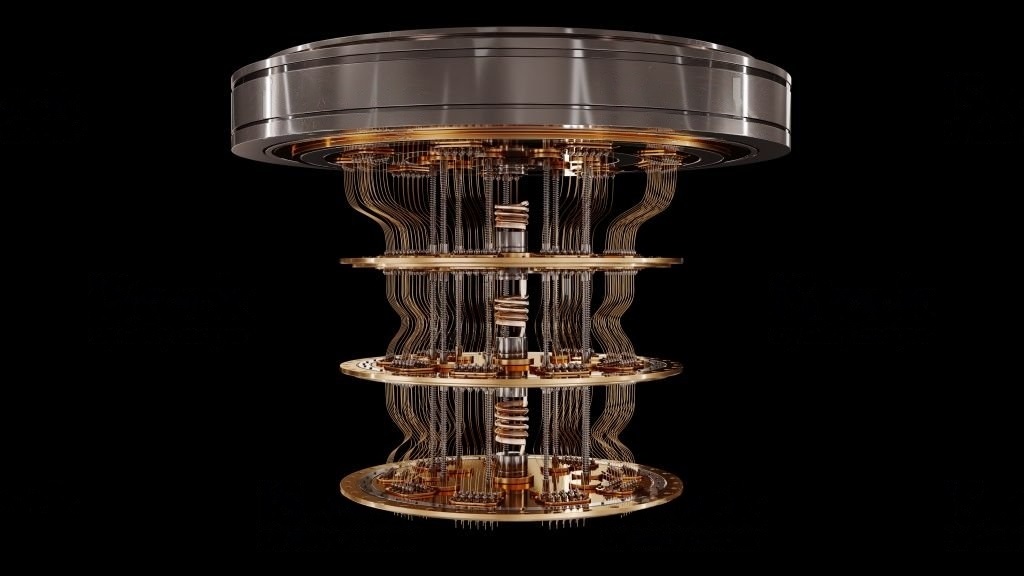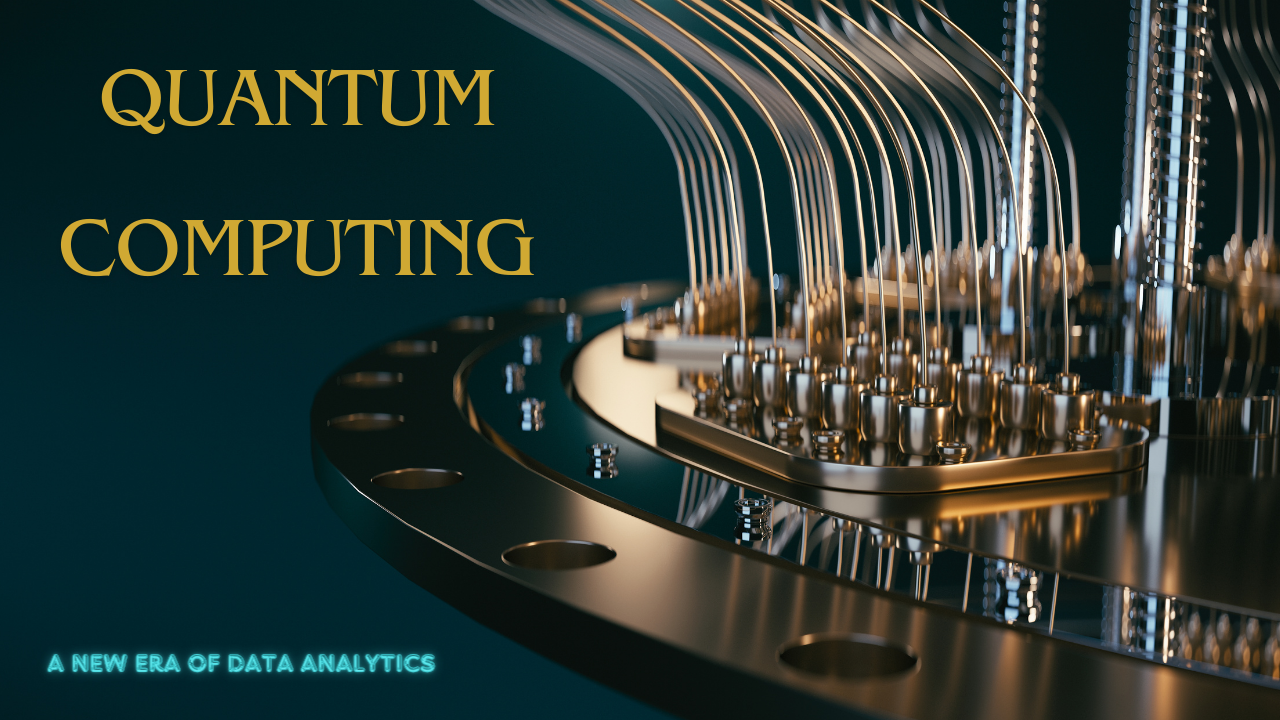Hey there, fellow tech enthusiasts!
Have you ever wondered how computers of the future might look like or what kind of mind-boggling capabilities they would possess?
Well, you’re in luck!
Today, we’re diving into the fascinating world of quantum computing, which promises to revolutionize the way we approach complex problems and redefine the limits of our current technology.
So, buckle up, and let’s get started!
Table of Contents
- Introduction
- What is Quantum Computing?
- Why Quantum Computing is Important?
- Basics of Classical Computing
- Quantum Computing
- Comparing Classical and Quantum Computing
- Current State and Future Prospects of Quantum Computing
- Summary
Introduction
Imagine you’re trying to crack a complex code with billions of possible combinations 
A classical computer might take ages to go through each possibility, one by one. However, a quantum computer could potentially explore all these combinations simultaneously, cracking the code in just seconds!
This is just a tiny glimpse of the power quantum computing holds. Intrigued yet?
To truly appreciate the magic of quantum computing, we need to first understand its foundation – the world of quantum mechanics, which is full of peculiar phenomena like superposition and entanglement.
Remember Schrödinger’s cat?
It’s both alive and dead until observed. That’s superposition for you! And entanglement? It’s like having two particles in a long-distance relationship, where the actions of one immediately affect the other, regardless of the distance between them!
What is Quantum Computing?
Quantum computing is an advanced form of computing that uses the principles of quantum mechanics (a branch of physics that deals with the behavior of tiny particles at the atomic and subatomic levels) to process information.
Instead of using regular bits (like 0s and 1s) in classical computers, quantum computing uses quantum bits or qubits. The magic of qubits is that they can exist in a state of superposition, meaning they can be both 0 and 1 simultaneously!
Think of it like this: imagine you’re flipping a coin.
In the classical computing world, the coin can only be heads (1) or tails (0). But in the quantum realm, the coin can be both heads and tails at the same time, until you observe it. Wild, right?
Why Quantum Computing is Important? 
Quantum computing is important because it has the potential to revolutionize many industries and solve problems that are currently too complex for classical computers.
Here are a few reasons why it’s a big deal:
- Speed and efficiency: Quantum computers can solve certain problems exponentially faster than classical computers. For example, they could crack encryption codes in seconds, which would take a classical computer millions of years.
- Scientific breakthroughs: Quantum computing could help us understand the universe better, by simulating complex quantum systems and making new discoveries in areas like materials science, medicine, and even artificial intelligence.
- Improved cybersecurity: While quantum computers could break current encryption methods, they also offer new ways to create stronger encryption, making our digital world more secure.
- Tackling global issues: Quantum computers could help us optimize resources, develop new materials, and design better drugs, potentially addressing major challenges like climate change and diseases.
Basics of Classical Computing
Binary system and bits 
Classical computing uses a binary system, which means it works with just two digits: 0 and 1. These digits are called bits. It’s like the computer’s alphabet! 
Just as we form words by combining different letters, computers use combinations of 0s and 1s to represent all sorts of information, like text, images, and even cat videos!
Classical computing hardware 
- Central processing unit (CPU): The CPU is like the brain of a computer. It’s responsible for carrying out instructions and crunching numbers. CPUs can have multiple cores, kind of like having several brains working together. The more cores, the faster the computer can think!
- Memory and storage: Memory (RAM) is like the computer’s short-term memory, where it keeps the data it’s currently using. Storage (hard drives or SSDs) is like long-term memory, where the computer saves files, documents, and your favorite memes.
Logic gates and circuits 
Logic gates are the building blocks of computing. They take input in the form of bits (0s and 1s) and produce an output based on certain rules. There are different types of logic gates, like AND, OR, and NOT gates. For example, an AND gate will output a 1 only if both its inputs are 1s.
These logic gates are combined to create circuits that perform more complex tasks. Think of it like a Rube Goldberg machine, where each gate triggers another, and so on, until you get the final result.
Quantum Computing 
Basic principles of quantum mechanics 
- Superposition: Imagine you have a coin. In classical physics, it’s either heads or tails. But in quantum mechanics, it can be both heads and tails at the same time! That’s superposition for you. It allows particles to exist in multiple states simultaneously.
- Entanglement: This is like a quantum love story.
When two particles become entangled, they’re connected, no matter how far apart they are. If you change the state of one particle, the other instantly changes too! It’s like they’re texting each other really, really fast.
- Quantum states: These are the possible configurations of a quantum system. It’s like picking an outfit for the day. A particle can wear multiple outfits at once (superposition), but once you observe it, it chooses just one.
Quantum bits (qubits) 
- Qubit representation: Qubits are the quantum version of bits. They can be both 0 and 1 at the same time, thanks to superposition. It’s like having a coin that’s both heads and tails simultaneously!
- Qubit manipulation: Changing a qubit’s state is like spinning the coin. Researchers use different methods, like lasers or magnetic fields, to manipulate qubits and perform calculations.
Quantum gates and circuits 
Quantum gates are like logic gates in classical computing but with a quantum twist. They manipulate qubits to perform calculations. Quantum circuits are combinations of quantum gates that work together to solve problems, like a quantum jigsaw puzzle!
Advantages of quantum computing 
- Parallel processing: Quantum computers can process multiple calculations at once, like a super multitasker!
This makes them much faster at solving certain problems compared to classical computers.
- Solving complex problems: Quantum computers can tackle problems that are too complex or time-consuming for classical computers, like simulating molecules for drug discovery or optimizing traffic in a city.
- Cryptography and security: Quantum computers could break current encryption methods, but they also offer new ways to create stronger encryption, making our digital world more secure. It’s like a double-edged sword!
Comparing Classical and Quantum Computing
| Aspect | Classical Computing | Quantum Computing |
| Processing power | Great for everyday tasks and can perform billions of calculations per second. | Exponentially faster for specific problems |
| Information representation | Bits (0s and 1s) | Qubits (can be both 0 and 1 simultaneously) |
| Computational complexity | Good for simple and moderately complex problems | Excels at complex problems (optimization, cryptography, simulations) |
| Energy efficiency | Consumes more energy for complex problems. | Potentially more energy efficient for specific problems |
| Applications and problem-solving capabilities | General-purpose computing (text, images, video, etc.) | Highly specialized tasks and problem-solving (drug discovery, traffic optimization, etc.) |
Current State and Future Prospects of Quantum Computing 
Quantum computing hardware 
- Superconducting qubits: These qubits are tiny circuits made of superconducting materials that can carry electric current without any resistance. They’re like little superheroes with super-speedy electrical powers!
- Trapped ions: In this approach, individual ions are trapped and manipulated using lasers to create qubits. It’s like a microscopic game of laser tag!
- Topological qubits: These qubits are based on the idea of braiding particles called anyons. Imagine qubits as pieces of string that you can braid together, making them more stable and resistant to errors. How stylish!
Quantum computing software and algorithms 
Just like classical computers need software, quantum computers need their own algorithms to perform calculations. Researchers are developing new quantum algorithms to solve various problems, from optimization to cryptography. It’s like teaching a quantum computer new tricks!
Challenges and limitations 
Quantum computing is still in its early stages, and there are some hurdles to overcome:
- Error correction: Qubits are delicate and prone to errors, so researchers are working on error-correcting techniques to make quantum computers more reliable.
- Scalability: Building large-scale quantum computers with enough qubits to solve practical problems is a challenge. But don’t worry, scientists are on it!
- Integration: Integrating quantum computers with classical systems and developing practical applications will require more research and collaboration. Teamwork makes the dream work!
Potential applications and industries 
Quantum computing has the potential to revolutionize various industries, such as:
- Drug discovery: Simulating molecules and developing new drugs could become faster and more accurate with quantum computing.
- Finance: Quantum computers could optimize trading strategies and risk management, leading to smarter investments.
- Artificial intelligence: Quantum computing could accelerate machine learning, making AI smarter and more efficient.
- Climate modeling: Quantum computers could help us understand and predict climate patterns, leading to better strategies for combating climate change.
Summary
Quantum computing is an exciting and rapidly evolving field that has the potential to revolutionize various industries and solve complex problems that are currently beyond the reach of classical computers. As we’ve explored the basics of both classical and quantum computing, their differences, current state, and future prospects, it’s clear that quantum computing holds great promise.
However, there are still challenges and limitations to overcome, such as error correction, scalability, and integration with existing systems.
Researchers and scientists around the world are working tirelessly to address these issues and unlock the full potential of quantum computing.
The future of quantum computing is undoubtedly bright, and as it continues to advance, it will likely transform our lives in ways we can’t even imagine yet. So, stay curious, keep an eye on the latest developments, and embrace the quantum revolution as it unfolds.
Who knows what amazing innovations await us in the quantum realm?
Thank you for reading our blog, we hope you found the information provided helpful and informative. We invite you to follow and share this blog with your colleagues and friends if you found it useful.
Share your thoughts and ideas in the comments below. To get in touch with us, please send an email to dataspaceconsulting@gmail.com or contactus@dataspacein.com.
You can also visit our website – DataspaceAI



































